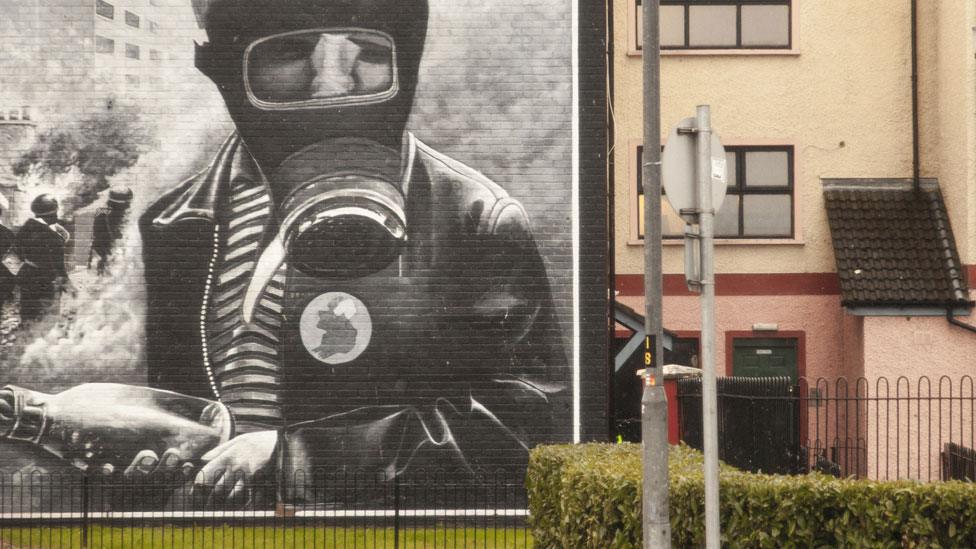German host of secret Northern Ireland peace talks dies
- Published

The German clergyman had chaired a series of secret meetings in the 1980s to break the Troubles deadlock
A Lutheran clergyman who hosted secret meetings in Germany between deadlocked Northern Ireland political parties in the 1980s has died.
Eberhard Spiecker brought together leading unionist and nationalist figures in Duisburg in 1988 - a decade before the Good Friday Agreement.
Dr Spiecker was later thanked by ministers for his confidential efforts.
The clergyman convened private talks for parties unable to hold such bridge-building negotiations in public.
Dr Spiecker, living in what was then West Germany, played a significant but little recognised role in efforts to build a Northern Irish political peace process in the 1980s.
Describing his involvement, the clergyman said that he had wanted to tackle the "chasm" between communities that had opened in the wake of the republican hunger strikes.
He said that the Duisburg peace talks in 1988 had followed two previous "rapprochement" meetings between Northern Irish politicians and community leaders, in 1985 and 1987, also held in secret in German cities.
The Duisburg talks were attended by representatives of parties across the community divide - the Democratic Unionist Party, the Ulster Unionist Party, the Social Democratic and Labour Party and the Alliance Party.
The senior political figures attending included the DUP's Peter Robinson and the SDLP's Austin Currie.
There had been opposition to the idea of a Sinn Fein representative directly taking part.
But Dr Spiecker, who chaired the talks, said that as a compromise Father Alec Reid had attended, acting as a go-between with the "republican movement".
Fr Reid, who died in 2013, later went on to play an important role in the peace negotiations that lead to the Good Friday Agreement.
Another "secret peacemaker", Brendan Duddy, died last week. He provided a channel for communications between the IRA and the British government.
Although no agreement emerged from the Duisburg talks, they were seen as a significant symbolic step towards building a political process to end the Troubles.
Austin Currie, who represented the SDLP at Duisburg, said success at the talks would have made a "significant impact on the future of Northern Ireland politics".
He said Dr Spiecker wanted to find a way to resolve unionist opposition to entering into discussions until the Anglo-Irish Agreement of 1985 had been set aside.
The proposal at the talks was to put the intergovernmental conference, created by the agreement, on hold for a set amount of time to allow parties to hold discussions.
"The failure to take up the proposal at Duisburg created an opportunity for the extremes which filled the vacuum," said Mr Currie.